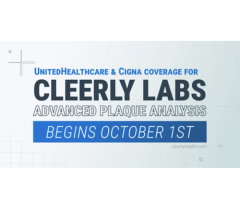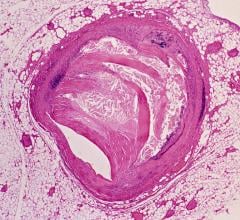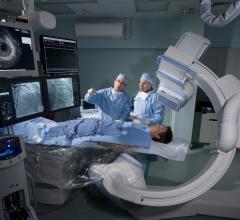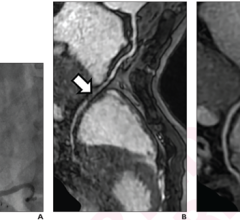
September 8, 2016 — Prevencio Inc. announced that data on its new clinical and multi-protein panel to diagnose obstructive coronary artery disease was presented at the European Society of Cardiology (ESC) Congress. The data was presented by Principal Investigator James L. Januzzi, M.D., a practicing cardiologist at Massachusetts General Hospital and professor of medicine at Harvard Medical School.
Researchers assayed and analyzed blood proteins and clinical variables from the Catheter Sampled Blood Archive in Cardiovascular Disease (CASABLANCA Study). For this study, 927 subjects with coronary angiography were included, and considered for the presence or absence of >70 percent obstruction in at least one major coronary artery. The data demonstrated high accuracy for the score to predict the presence of significant coronary obstruction. The score had an area under the receiver operating characteristic curve (AUC) of 0.87, and had 90 percent positive predictive value (PPV) for a one cut-off score. In an alternative five score model, a score of 5 (very high risk) produced a PPV of 93 percent and a score of 1 (very low risk) produced a negative predictive value (NPV) of 91 percent.
When the new test score, referred to as HART CAD, was compared with available data for the renowned Framingham Risk Score (FRS), the HART CAD produced consistent and superior performance for predicting presence of coronary artery disease (AUC of 0.87 for HART CAD versus 0.52 for FRS). Similarly, when HART CAD was compared with available data for exercise and nuclear stress tests, which are standards of care in the evaluation of coronary artery disease, the HART CAD was substantially more accurate for predicting coronary artery disease (AUC of 0.87 for HART CAD versus 0.52 for stress testing).
"We were pleased to identify a diagnostic score of clinical variables and proteins with excellent accuracy for the diagnosis and exclusion of patients with underlying significant coronary artery disease," said Januzzi. "It is impressive the panel performed well across multiple groups, including those without prior known coronary artery disease, those presenting without acute myocardial infarct, and notably in women, who represent a diagnostic challenge."
Consistent with its ability to predict presence of significant CAD, the HART CAD panel also predicted risk of future myocardial infarction (also known as MI or heart attack) and, in subjects with an elevated score, there was a shorter time to MI as compared to subjects with a lower score.
The panel's clinical parameters included sex and history of percutaneous coronary intervention, as well as four proteins (adiponectin, apolipoprotein C-1 [Apo C-1], kidney injury molecule-1 [KIM-1], and midkine). "Taken together, the proteins in our score represent a unique pathophysiologic mix of abnormal glucose and fatty acid metabolism (adiponectin), hyperlipidemia (Apo C-1), renal dysfunction/injury (KIM-1), and vascular injury and plaque infiltration (midkine), and explains why the 'orthogonal' information provided by these proteins added independent value to the clinical variables. We look forward to testing the HART CAD score in patients with different pre-test probabilities and hopefully bringing a new, non-invasive test to the millions of patients who need improved diagnosis for coronary artery disease," said Januzzi.
Interest in coronary artery disease is driven largely by the fact that the disease is a major public health concern. It is a leading cause of death in the U.S., affecting nearly 20 percent of people ages 65 and older. Current coronary artery disease testing modalities, including stress testing and cardiac computed tomography (CT) have limitations, including variable accuracy, limitations in obese and female patients, and need for ionizing radiation with adjunctive imaging for stress testing, as well as ionizing radiation, limited availability and high costs for cardiac CT. Moreover, up to 50 percent of patients are needlessly referred for invasive coronary catheterization, subjecting them to additional ionizing radiation and complications including death. As such, a non-invasive, low-cost, and safe test would be valuable and potentially result in reduction of morbidity, mortality, and healthcare costs.
For more information: www.prevenciomed.com

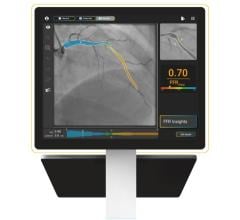
 October 24, 2025
October 24, 2025 
